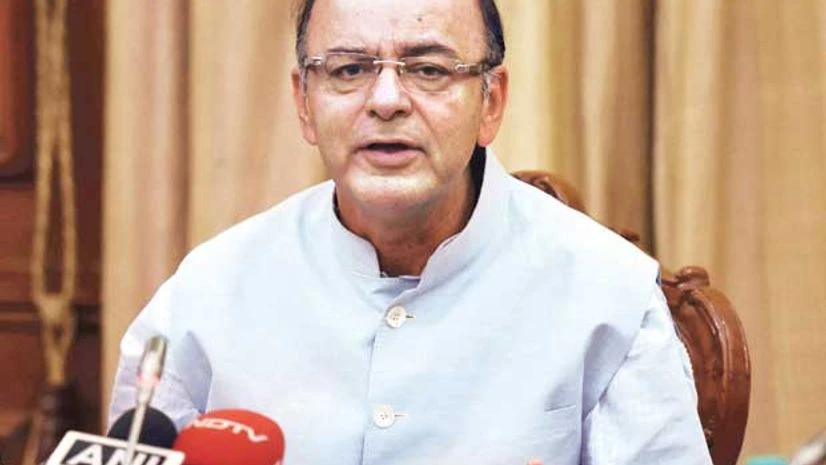A high-pitched debate. Worry about the future. Voting. And, the Goods and Services Tax (GST) Constitution (Amendment) Bill was passed by the Rajya Sabha on Wednesday evening.
At final count, all the 203 members present in the upper House voted in favour of the Bill. The AIADMK, with 13 members, had staged a walkout over disagreements.
|
ON THE POCKET Once the GST comes into effect, some things will get more expensive, others cheaper |
|
What will get cheaper? Cars, SUVs, two-wheelers, Watching movies, Electronics What will get dearer? Eating out, Mobile calls, Travelling Excluded Alcohol, petroleum products |
Now, a few more steps would enable the Centre and states to frame laws on the new indirect tax.
The GST regime would be a historic economic reform, making the country a unified market. But, it requires further consensus on the GST Bills over which differing opinions were voiced by the Opposition and the Treasury benches.
Read our full coverage on the GST Bill and its impact
This indicates the road ahead for the GST - planned to be implemented on April 1, 2017 - will be challenging.
The Congress tried and failed to get an assurance from Finance Minister Arun Jaitley that rates would be capped in the GST Bills and that the Central GST Bill would be a financial legislation - not a money Bill. The Rajya Sabha cannot reject a money Bill.
There were also divergent opinions on the dispute-resolution mechanism. Even as administrative control over scrutiny and assessment of tax remained an issue, Jaitley assured the House it would be resolved. "The GST Bill is the most reformative tax reform," he said, adding it would give the country an economic boost. "Legislation of this kind cannot be based on partisan considerations. Almost every major party is a part of the power structure in the country. A larger political consensus was necessary. We have worked towards it."
There was a broad consensus, but unanimity remained elusive with the missing AIADMK members at the time of voting.
When the GST regime comes into force, it will subsume a slew of indirect central taxes, including excise duty, service tax, countervailing duty and those of the states, such as value added tax, sales tax, luxury tax and octroi.
The Bill was passed in the Rajya Sabha one-and-a-half years after the Lok Sabha cleared it. It became possible after the government yielded to some of the Congress' demands, such as scrapping a contentious one per cent additional levy on inter-state supply of goods. Other amendments related to compensating states for revenue loss for up to five years and requiring the GST council to establish a mechanism for adjudication of disputes between the Centre and states or among states.
| THE ROAD AHEAD… |
|
The new Bill, with the amendments, will return to the Lok Sabha at the earliest - possibly by next Monday - to get its nod.
Former Union finance minister P Chidambaram wanted disputes other than those arising out of the proposed GST Council's recommendations should also be taken up by the dispute-resolution mechanism that will come up. Jaitley highlighted the co-operation of the Centre and states for the GST. "The Centre and the states will have to work together. This will be federalism at play."
Jaitley added the GST would bring about the best economic management. "It will empower the states and increase revenue. It will discourage and bring down evasion."
The finance minister allayed fears that the proposed GST would increase inflation.
Congress leader P Chidambaram said he welcomed the "friendly and conciliatory tone" of the finance minister Jaitley, who later said the amended Bill will be introduced in the Lok Sabha "very soon".
The debate on Wednesday saw divergent views on subsequent GST Bills.
Most political parties in the Opposition, including Congress, Communist Party of India (Marxist), Janata Dal (United), Samajwadi Party and Trinamool Congress demanded the Central GST Bill and the Integrated GST Bill be passed by both Houses - not as a money bill, which only requires approval by a simple majority in the Lok Sabha.
Chidambaram said, "I want an assurance from the finance minister that GST will be brought as a financial Bill and not a money Bill."
His party colleagues Jairam Ramesh, Gulam Nabi Azad, Kapil Sibal supported him.
However, Jaitley said he could not give an assurance as the proposed GST Council is yet to be set up. "It has not even framed the draft GST Bills."
Congress also pressed for a low GST rate, which is ring-fenced in the subsequent GST Act. "On behalf of my party, we demand the standard rate of GST - which applies to over 70 per cent of the goods and services - should not exceed 18 per cent," said Chidambaram.
|
“The enactment of GST will bring about the best economic management in its federal form”
Arun Jaitley Union finance minister |
“GST stands for good sense triumphs. We welcome the govt’s conciliatory tone… We have been asking for a better Bill”
P Chidambaram
Former Union finance minister
Former Union finance minister
“It signals the govt’s resolve to put in place a significant structural change which will benefit all segments of the economy”
Chanda Kochhar
MD & CEO, ICICI Bank
MD & CEO, ICICI Bank
“The legislation will… significantly improve ease of doing business… help prop up GDP growth rate”
Sunil Bharti Mittal
Founder and chairman, Bharti Enterprises
Founder and chairman, Bharti Enterprises

)
